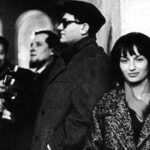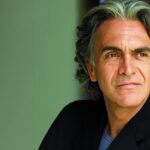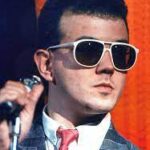Search for Artist in the database:
Project
TheItalianSong.com is not for profit.
It is intended for educational and scholarly purposes.
This site was initially developed by Francesco Ciabattoni with the contributions of many colleagues.
METHODOLOGICAL NOTE ABOUT THE TRANSCRIPTION OF THE SONG LYRICS
The site TheItalianSong.com has a primarily educational purpose and aims to spread Italian culture to a global audience by translating the most significant songs and contextualizing Italian singer-songwriters from the 1950s onward (although some singers have also been added who are not songwriters). Precisely because it was born as a teaching resource, of high quality and rigorous standards for a publicly accessible website, the selection of songs and artists is somewhat arbitrary and the transcription of song lyrics was carried out following a general methodology to make the whole process as consistent as possible. Except for the songs by Francesco De Gregori, for whose lyrics we followed the edition by Enrico De Regibus (Francesco De Gregori. I testi. La storia delle canzoni, Giunti Editore, 2020) because they were approved by De Gregori himself in an interview at Italian radio show La Lingua batte (min 8:00), the criteria taken into account are set out below.
Transcribing song lyrics is a forceful, unnatural and necessarily imperfect operation: the song is a complex text, composed of many characteristics (words, music, voice, image, movement) and is essentially oral in its sonorous form, the transcription of the lyrics (paroles, letras, testo letterario, Liedtext) presents new textual problems that have no easy solution. For example, how should we add punctuation and capital letters? where should we break the line if the music itself does not clearly suggest it? how should we transcribe phonetic ambiguities or glossolalìa? And even before addressing these specific problems, to what extent is it legitimate or useful to transcribe graphically these non-verbal elements of the text, which obviously can vary according to different interpretations of the same piece? In this regard, it must be specified that, without wanting to extend the status of auctor in the classical sense of the literary sciences to every songwriter or singer, we should nevertheless recognize that certain songwriters have paid attention to the transcription and edition of their lyrics: for example, Francesco De Gregori edited the edition of his entire corpus of song lyrics, as cited above, and Francesco Guccini has selected about fifty of his texts for a volume (F. Guccini, Canzoni, 2018, with Introduction and Commentary by Gabriella Fenocchio).
Another essential caveat is that, for the transcriptions on this website, we referred to the first studio recording of each song. We believe that the original recording should be considered the version licensed by the author and the singer: here, therefore, we did not respect “last will of the author” in the strict sense, but only of the final result as recorded in the studio version first released. Sometimes the video linked on Youtube will instead be of a live or later version, but this choice is due to specific cultural and entertainment interests, and has nothing to do with the transcription of the text.
With these few methodological principles in place, the site remains primarily a support for teaching and for the dissemination of Italian culture to the broader world, with no ambitions to represent a textual or philological model for the edition of musical texts. We thank the authors and all those who have contributed to its creation.
Artist database
About
Francesco Ciabattoni is Professor in Italian Literature at Georgetown University. He received his Laurea in Lettere from the Università degli Studi di Torino and his PhD in Italian Studies from Johns Hopkins University.
Prof. Ciabattoni’s research focus lies on Dante and the middle ages, the twentieth century short story and the interplay of music and literature. He has published on Dante, Petrarch and Boccaccio, Giuseppe Berto, Pier Paolo Pasolini in various international journals as well as a collection of original poems (Paradosso terrestre, Il filo, 2008).
CONTRIBUTORS:
Sarah Annunziato (The University of Virginia) – Gianni Morandi
Debora Bellinzani (University of Wisconsin) – Giorgio Gaber
Luca Bertoloni (University of Pavia) – Max Pezzali, Enrico Ruggeri, Roberto Vecchioni, Zucchero
Eleonora Buonocore (University of Calgary) – 883, Mia Martini, Nino Buonocore
Alessandro Carrera (University of Houston) – Paolo Conte, Ivan Della Mea
Paolo Chirumbolo (Louisiana State University) – Edoardo Bennato, Eugenio Bennato
Francesco Ciabattoni (Georgetown University) – Lucio Battisti, Francesco De Gregori, Fabrizio De André, most of the lyrics translations.
Alexandre Ciarla (Independent Scholar) – Lucio Battisti
Berenice Cocciolillo (John Cabot University)- Franco Califano
Corrado Confalonieri (Wesleyan University) – Baustelle
Carla Cornette (University of Missouri) – “Cara Italia,” “Afroitaliano,” “Soldi”
Cesare Crova (Indipendent Scholar) – Alberto Camerini
Sara De Angelis (Independent Scholar) – Samuele Bersani
Erika Deboni (Università di Pisa) – Luciano Ligabue, Milva
Anthony Deldonna (Georgetown University) – Pino Daniele
Aidan Maione & Sara Díaz (Fairfield University) – Subsonica
Giusy Di Filippo (College of the Holy Cross) – Caparezza
Paolo Di Motoli (Università di Padova) – Vinicio Capossela, Sergio Caputo
Cathy Ann Elias (De Paul University) – Claudio Baglioni
Teresa Fiore (Montclair University) – Vinicio Capossela
Ombretta Frau (Mount Holyoke College) – Tazenda
Jan Gaggetta (Université de Fribourg) – Franco Battiato
Annibale Gagliani (Università del Molise / Università del Salento) – Madame
Valentina Gentile (Independet Scholar) – Marlene Kuntz
Claudio Giunta (Università di Torino) – Afterhours, Jovanotti (Lorenzo Cherubini)
Rachel Grasso (University of Toronto) – Ghali, Amir Issaa, Mahmood, Second-generation Italian Rap and Trap Songs
Scott Kapuscinski (Queens College, CUNY) – Gianmaria Testa
Massimo Lajolo (Composer & Musician) – Angelo Branduardi
Ernesto Livorni (University of Wisconsin, Madison) – Ivan Graziani
Elisabetta Maino (University of de Lisbon) – Ornella Vanoni
Simone Marchesi (Princeton University) – Gino Paoli
Mary Migliozzi (Villanova University) – Rino Gaetano, Giovanna Marini, Modena City Ramblers
Michele Mozzati – Enzo Jannacci
Chris Newman (George Mason University) – Vasco Rossi
Marianna Orsi (University of Hawaii at Manoa, Honolulu) – Fabrizio De André, Bruno Lauzi, Måneskin, Gino Paoli, Paola Turci
Sabrina Ovan (Scripps College) – Gianna Nannini
Amanda Pascali (Fulbright Fellow) – Rosa Balistreri
Cristina Perissinotto (University of Ottawa) – Francesco Guccini
Carlo Pestelli (Independent Scholar) – Claudio Lolli
Elena Porciani (Università della Campania “Luigi Vanvitelli”) – Alice
Vito Portagnuolo (Scuola Normale Superiore) – Domenico Modugno
Bridget Pupillo (Connecticut College) – Linguistic Consulting and Translation Expertise
Daniele Rocca (Independent Scholar) – Piero Ciampi
Fabio Romerio (University of Maryland, Baltimore)- “La nostra relazione“, “Vedrai vedrai“, “Via del campo“, “Cosa sarà“, “Anna e Marco“, “Ma come fanno i marinai“, “Prendila così“, “Autogrill“, “Cirano“, “Vedi cara“, “Don Chisciotte“
Jessica Ruffolo (University of Calgary) – Renato Carosone
Marco Santoro (Università di Bologna) – Luigi Tenco
Giuliano Scala (Université Aix Marseille) – Piero Ciampi
Pasquale Scialò (Università S. Orsola Benincasa, Naples) – Enzo Gragnaniello, Roberto Murolo
Antonio Sotgiu (CERLIM – Université Sorbonne Nouvelle) – Paolo Conte
Carlo Testa (University of British Columbia) – Enzo Jannacci
Anna Terroni (Università di Pisa) – Tommy Kuty
Jacopo Tomatis (Università di Torino) – Mina, Otello Profazio
Gaspare Trapani (CECC/FCH/UCP e FLUL/Ulisboa – Lisbona)- Donatella Rettore
Julianne VanWagenen (University of Michigan) – “Il suonatore Jones” De André
Ernesto Virgulti (Brock University) – Riccardo Cocciante
Laura Zambianchi (The University of Central Lancashire) – Antonello Venditti
A special thanks goes to:
Bridget Pupillo (Connecticut College) for assisting in the early stages of the translations.
Cesare Crova, for maintaining the website.
Jordan Brewer, Ciarra Criscione, Peter Di Giovanni, Rachel Grasso, Laura Martell, Christina McGrath, Raphaelle Hupez, Zachary Penati Aguilar, Luke Ross, Natalia Ruiz, Charles Salvest, Nikole Sanchez, Maya Tenzer, and Francesca Truitt.
Some translations are by students of Georgetown University and the University of Houston.

























































































































































